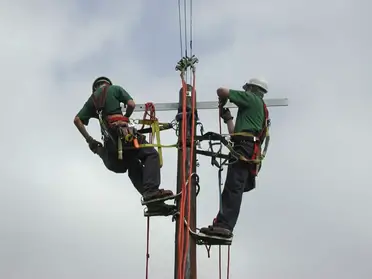Being a lineman may not be a profession that immediately comes to mind when thinking about stressful jobs, but it is a reality that often goes unnoticed. The job of a lineman is not just about fixing power lines or restoring electricity during outages. It is a demanding and high-pressure role, where individuals are constantly exposed to hazardous conditions, extreme weather, and time-sensitive situations. This article aims to shed light on the challenging and sometimes overwhelming reality that linemen face every day, showcasing their dedication and resilience in the face of adversity.
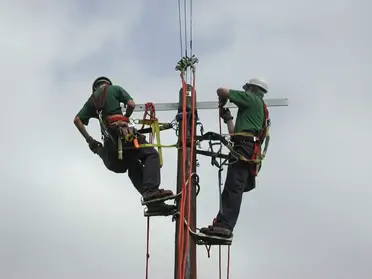
The Physical Demands of the Job
Being a lineman requires you to handle a variety of physical tasks that can take a toll on your body. First and foremost, working at great heights is a regular part of the job. Whether you are climbing utility poles or scaling towers, you must have a fearlessness and a good sense of balance. The constant exposure to extreme weather conditions is also something you have to be prepared for. Whether it’s scorching heat, freezing cold, heavy rain, or strong winds, you need to be physically resilient in order to continue your work safely. Additionally, the job involves heavy lifting and physical strength. Carrying heavy equipment and materials, as well as working in cramped spaces, can strain your muscles and put stress on your body. Strength and endurance are key attributes required to meet these physical demands.
The High Risk of Injury
Working as a lineman comes with its fair share of risks and hazards, increasing the likelihood of injuries. One of the most dangerous dangers is electrocution. Linemen often work with high-voltage electricity, and even the slightest momentary lapse in concentration or improper handling of tools can lead to a catastrophic outcome. Falls and accidents are other significant risks linemen face. Working at great heights exposes you to the risk of missteps, slips, or equipment failure, which can result in severe injuries or even fatalities. Moreover, equipment malfunction is a constant concern. Faulty gear, damaged tools, or defective machinery can all pose serious threats to your safety. To minimize the risk and protect yourself, following proper safety protocols and undergoing regular training is paramount.
The Mental and Emotional Pressure
In addition to the physical demands and risks of the job, linemen also face significant mental and emotional pressure. Working under pressure is a common occurrence, as you must meet tight deadlines and complete tasks efficiently. The nature of the job also requires you to deal with customer complaints, often when they are frustrated or experiencing a power outage. Patience, effective communication, and problem-solving skills are essential in such situations. Constant focus and concentration are crucial for ensuring safety and avoiding any errors that could have severe consequences. The mental stamina required to maintain concentration for long hours is not to be underestimated.
The Long and Demanding Work Hours
Linemen often find themselves working long and unpredictable hours due to the nature of their job. On-call availability is a necessary part of the role, as emergencies can arise at any time. This means being ready to respond to power outages, accidents, or infrastructure failures, regardless of whether it’s the middle of the night or a holiday. Overtime work is also common since restoration efforts or repairs may extend beyond regular working hours. These extended work hours can lead to sleep deprivation and exhaustion, making it challenging to maintain a healthy work-life balance.
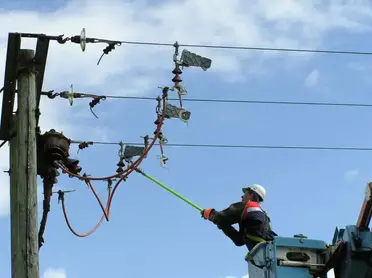
The Isolation and Loneliness
The nature of a lineman’s job often requires working in remote locations, away from bustling cities and populated areas. This can lead to a sense of isolation and loneliness, as you are physically separated from your friends and family for extended periods. Limited social interactions with coworkers are another aspect of the job that can contribute to feelings of isolation. Spending long hours on utility poles or working individually on a task can exacerbate this sense of loneliness. These emotional challenges can be tough to handle, especially for individuals who thrive on social connections.
The Job-related Stressors
Tight deadlines and time pressure are constant stressors for linemen. The urgency to restore power quickly during an outage or complete repairs within a limited timeframe can create a high-stress environment. Strict safety regulations, while necessary for protecting workers, can also add pressure to ensure compliance and follow protocols and procedures meticulously. Maintaining high levels of productivity is also expected in this demanding job, which requires consistent effort and attention to detail.
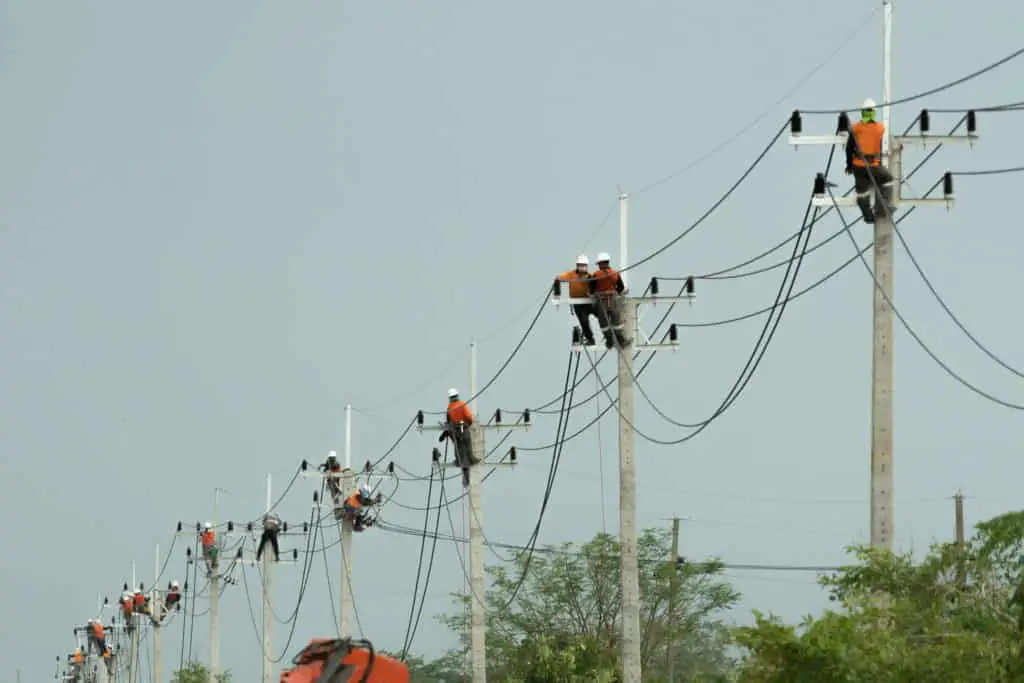
The Psychological Impact of the Job
The stressful nature of being a lineman can have significant psychological consequences. Post-Traumatic Stress Disorder (PTSD) is a real risk due to the traumatic incidents and dangerous situations linemen face regularly. Anxiety and depression may also develop as a result of the immense pressure and high-stress environment experienced on the job. These conditions can have a debilitating effect on mental well-being, making it crucial for linemen to prioritize their mental health and seek support when needed. Additionally, burnout and compassion fatigue can occur as a result of the emotional toll that this job can take. The combination of physical demands, high-risk situations, and the pressure to meet expectations can exhaust linemen mentally and emotionally.
The Impact on Personal Relationships
Being a lineman can put a strain on personal relationships due to the long absences from home. Spending significant amounts of time away from family and loved ones can create feelings of resentment and strain relationships. The difficulty in balancing work commitments with family life is a constant challenge for linemen. Moreover, the emotional toll of the job can lead to increased irritability and mood swings, making it even more challenging to maintain healthy and supportive relationships.
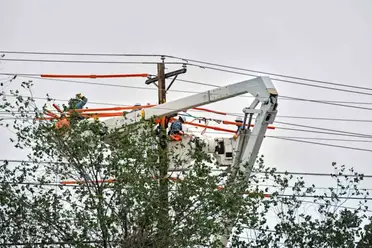
The Lack of Recognition and Appreciation
Despite the critical role linemen play in ensuring a reliable power supply, their work often goes unnoticed or underappreciated. They are undervalued, and their efforts often lack public recognition. This lack of acknowledgement can be disheartening and demotivating. Linemen work tirelessly in challenging conditions to keep the lights on, and it’s important for their contributions to be recognized and appreciated.
Coping Mechanisms and Self-Care
Given the immense demands and stressors faced by linemen, it is crucial for individuals in this profession to prioritize self-care and seek coping mechanisms. Seeking professional help, such as therapy or counseling, can provide a safe space to address and manage the mental and emotional challenges. Building a strong support network of friends and colleagues who understand the unique demands of the job can also be invaluable. Engaging in stress-relief activities, such as exercise, hobbies, or mindfulness practices, can help alleviate anxiety and provide a much-needed mental break. It’s essential for linemen to take proactive steps to prioritize their well-being and find healthy outlets to cope with the various stressors they encounter on the job.
Being a lineman is undoubtedly a stressful job. From the physical demands and risks to the mental and emotional pressure, linemen face a multitude of challenges. The long and demanding work hours, coupled with the isolation and strain on personal relationships, contribute to the overall stress levels experienced. The lack of recognition and appreciation only further compounds the difficulty of the job. However, with the right support system, coping mechanisms, and self-care practices, linemen can navigate these stressors and maintain a healthier work-life balance. It’s essential for both individuals in this profession and society as a whole to recognize the sacrifices and critical role linemen play in keeping our communities powered.





